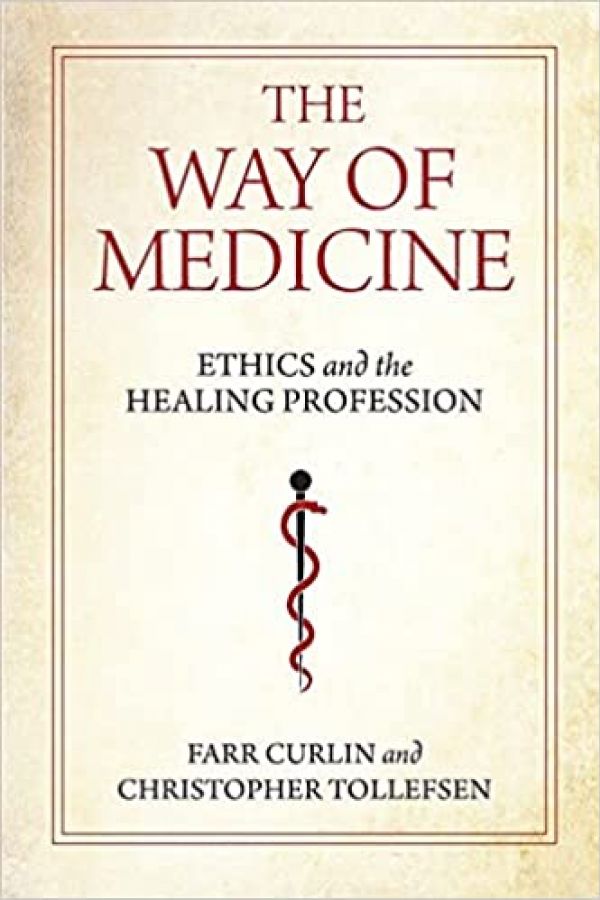What is medicine and what is it for? What does it mean to be a good doctor? Answers to these questions are essential both to the practice of medicine and to understanding the moral norms that shape that practice.
Challenging the reigning “provider of services” model, in which clinicians offer an array of services for the patient’s subjective well-being, Farr Curlin, Josiah C. Trent Professor of Medical Humanities, and Christopher Tollefsen call for practitioners to recover what they call the “way of medicine.” This also offers physicians the moral resources necessary to resist the various political, institutional, and cultural forces that constantly push practitioners and patients into thinking of their relationship in terms of economic exchange.
The book provides an accessible account of the ancient ethical tradition and explores the nature of medicine as a practice, health as the end of medicine, the doctor-patient relationship, the rule of double effect in medical practice, and a number of clinical ethical issues from the beginning of life to its end. This is an intellectually serious yet accessible exploration of medical practice written for medical students, health care professionals, and students and scholars of bioethics and medical ethics.
